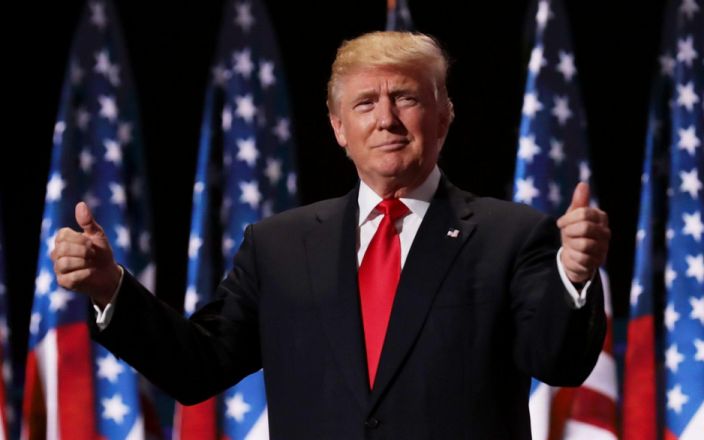
 news
news 
[ad_1]
Iran’s Supreme Leader personally authorised a cyber campaign that aimed to prevent Donald Trump winning re-election in 2020, according to a new US intelligence report.
Ayatollah Ali Khamenei launched a “multi-pronged covert influence campaign” out of fears that Mr Trump’s administration would continue with its policy of sanctions and ‘maximum pressure’ against Tehran.
The assessment was made in a 15-page report into election interference published by the Office of the Director of National Intelligence (ODNI) – the first US government report on the matter since November’s vote.
The ODNI concluded that Iranian regime was driven by fears that the Trump administration posed an “acute threat” to its survival.
It said that Iranian operatives created and amplified social media content criticising Mr Trump, spreading at least 1,000 pieces of unique content.

It found, however, that the Islamic Republic – which has stepped up its cyber abilities drastically over the past decade – made no effort to instead promote Democratic rival Joe Biden.
The effort was approved by Iran’s Supreme Leader Ayatollah Ali Khamenei and involved Iran’s military and intelligence agencies, which used both overt and covert messaging and conducted cyber operations, the report said.
This involved targeting the US’s “perceived vulnerabilities”, including civil unrest over police killings, its Covid-19 response and the economy.
It was previously claimed by John Ratcliffe, the director of national intelligence, that Iran had managed to obtain US voter registration data, which it used to send threatening, faked emails to voters.
The report found no evidence that any votes were changed by technical means, rejecting false claims of elaborate conspiracies spread by former President Trump and his allies.
US intelligence agencies found other attempts to sway voters with information by Cuba, Venezuela, and the Iran-backed Lebanese militant group Hizbollah, but penetration of some local government systems had no impact on the results.

Meanwhile, Russia’s President Vladimir Putin authorised his own operation with the aim of smearing Mr Biden, his family, and the Democratic Party.
Moscow’s efforts became clear as the campaign got underway. A key element of Russia’s attacks on Mr Biden centered on false allegations that while vice president he sought to have a Ukrainian prosecutor fired so that he would not investigate his son, Hunter Biden.
Hunter was on the board of a Ukrainian gas company, Burisma, when his father was VP.
Tuesday’s report confirms that effort and said Moscow used proxies linked to its intelligence services to push misleading or unsubstantiated narratives about the now-president with US media outlets and “prominent” American officials, including operatives close to Mr Trump.
The report says that US intelligence agencies assess that Mr Putin had purview over Russian influence operations, including the activities of Andriy Derkach, a Ukrainian lawmaker linked to Russian intelligence who was sanctioned by the US Treasury Department in September.
Tehran and Moscow have previously denied any involvement in attempting to influence US elections.
Intelligence experts also found that China, which was previously thought to be expanding its US influence efforts, ultimately did not deploy operations to affect the outcome of the election.
“China, which sought stability in its relationship with the United States, did not view either election outcome as being advantageous enough for China to risk getting caught meddling, and assessed its traditional influence tools – primarily targeted economic measures and lobbying – would be sufficient to meet its goal of shaping US China policy regardless of the winner,” the report concluded.
[ad_2]